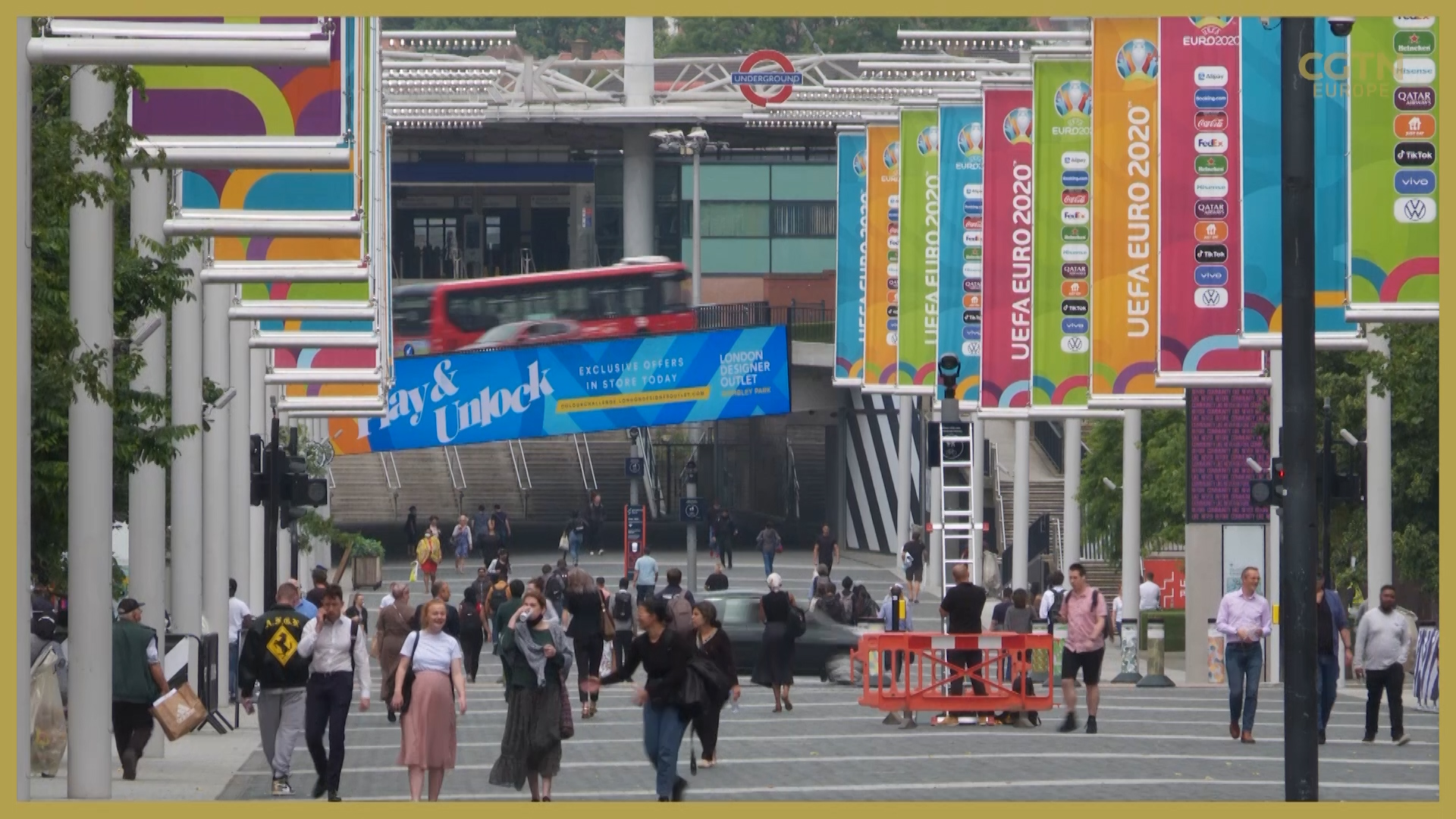02:28

For some fans watching the Euro 2020 football championships this summer, a few of the brands on the billboards may look unfamiliar.
Alipay, Vivo, Hisense and TikTok – ok, you've probably heard of the last one. But what they all have in common is they are Chinese firms.
The quartet makes up a third of the tournament's 12 main partners this year – that's more than any other country.
READ MORE
UK university's edible degree show
Refugees' recycling inspires others
How to become a paper plane champion
Digital payments firm Alipay has signed an eight-year deal with the sport's governing body in Europe, UEFA, to become the official global payment partner for its tournaments.
"Football is a universal, global language and it can also help us bridge all kind of people around the world," said Aaron Wang, general manager of sports, culture and entertainment at Ant Group, which operates Alipay.
"We really think the Europe market is important but it's also about improving the spectator experience. For example, in these 11 stadiums across the continent [where games are being played] the fans in there can use Alipay."
Wang said the Hangzhou-based firm "is open" to similar deals in other sports, such as "basketball, badminton and table-tennis," with a focus on making life easier for fans.
Changing advertising landscape
The growing visibility of Chinese companies at mega events has coincided with the country's economic rise in recent decades.
But experts say the nature of advertising and sports sponsorship is also shifting.
Alistair Gammell is associate partner at marketing agency Threepipe Reply and said the Euros represents one of a handful of "blue-ribbon" events in sports, where brands can "immediately reach billions of people worldwide."
Other examples include the Olympic Games and the ICC Cricket World Cup.
"It's all about finding meaningful and authentic ways to connect with people that showcase your product. And big events like the Euros give such a strong platform from the media and audience reach as well as innovation."
Another big change in the industry is that many of the brands partnering with major sports events are no longer just looking to sell products. The likes of Alipay, TikTok and Booking.com are all digital players hoping to engage customers with their services.
"Certainly with COVID-19, there's been even more of a move by consumers towards digital channels, which is why these sorts of brands are targeting events like the Euros," said Gammell.

